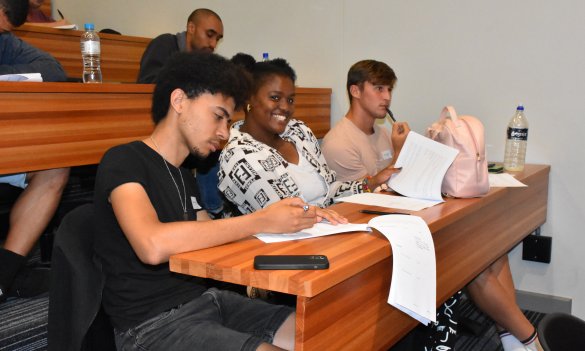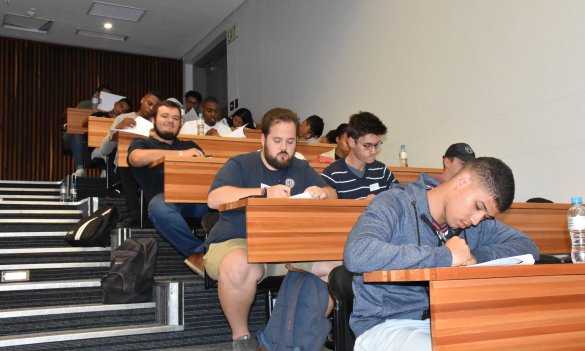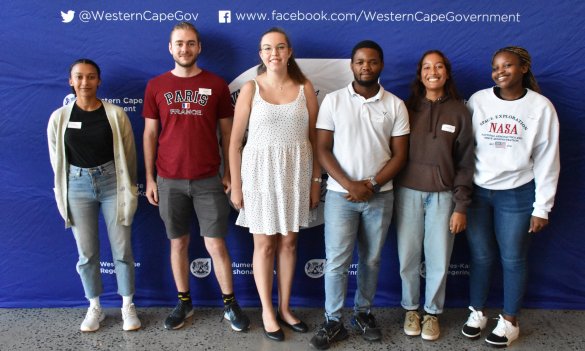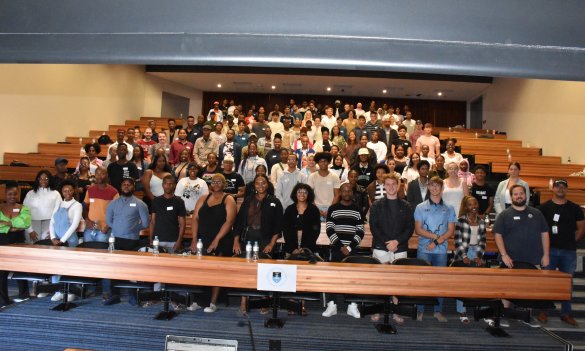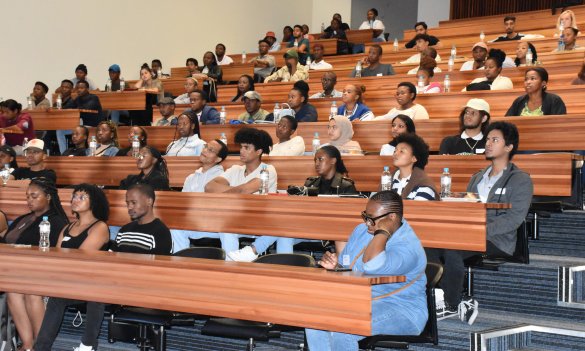On 18 February, 141 recipients of Department of Transport and Public Works Masakh’iSizwe bursaries signed their 2023 bursary contracts at a ceremony in Bellville. Some of the bursars will be registering for tertiary-level in the transport, engineering and built environment for the first time in 2023 whilst others will be continuing their studies in these fields.
The Masakh’iSizwe Bursary Programme aims to address skills shortage, capacity building and job creation for the youth by enabling promising young people to undertake tertiary-level studies. The programme continues with initiatives from previous years, and the co-ordination and success of the MiS Bursary programme is underpinned by its uniquely tailored approach of direct interaction with bursars, graduates and all other stakeholders. Bursaries are offered on a work-back basis. In other words, graduates are expected to work for the Department or for certain private companies for one year for every year that they received a Masakh’iSizwe bursary.
Masakh’iSizwe funds undergraduate and postgraduate studies at three prestigious tertiary education institutions in the Western Cape: the University of Cape Town, Stellenbosch University, and the Cape Peninsula University of Technology. In addition, the programme also boasts support services, tutoring, employment placement and partnerships with the private sector. These features serve to distinguish the programme from many other similar programmes and opportunities for young people. Through a public-private bursary collaboration venture, Masakh’iSizwe has established partnerships with construction and engineering industry leaders who have undertaken to invest in the future by offering Masakh’iSizwe bursars on-the-job training during university holidays, and to consider employing graduates after they have completed their studies.
Bursars are expected to meet all the current year’s academic requirements in order to apply for study support in the following year. In addition, bursars are obliged to participate in work integrated learning (WIL) programmes and to participate in study-relevant vacation training. The Programme covers the costs of tuition fees, accommodation fees, stationery, and tutoring and support services.
After they have graduated, former bursars help to meet DTPW’s operational requirements through the work-back provision of their bursary contracts; alternatively, they may be seconded to companies through the public-private bursary collaboration venture to obtain the required industry experience to return to the Department.


